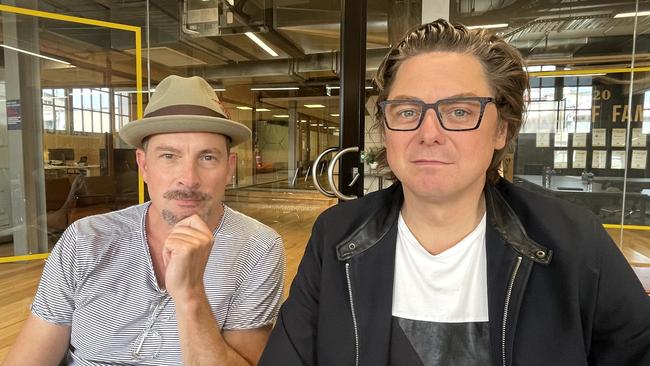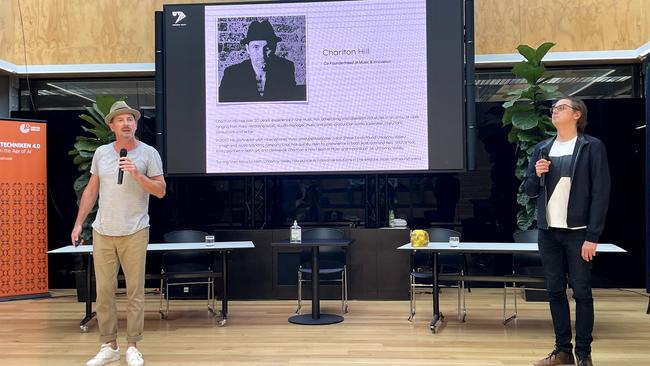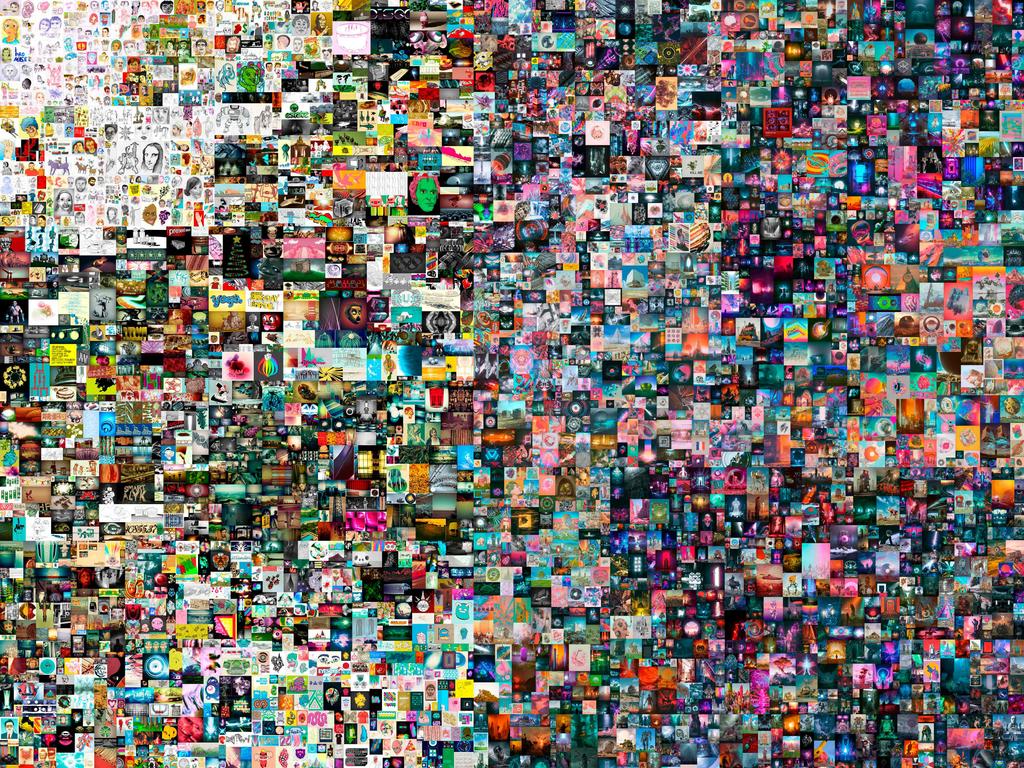Digital tokens can protect music, say Uncanny Valley co-founders Charlton Hill and Justin Shave
Non-fungible tokens could protect artificial intelligence-generated music which is the subject of copyright infringements.

Technology-based non-fungible tokens are finding a new path in the arts world, protecting music or other creations which increasingly face digital copyright infringements.
NFTs are digital certificates held on blockchain that prove you own something, whether it be a digital creation or real world item.
It could be an artwork, documents belonging to Nobel Prize-winning cancer researcher James Allison (auctioned this month), a music track or a tweet (Jack Dorsey’s first one was auctioned for $3.8m).
An NFT is seen as a more secure way of showing you own something and blockchain offers an irrefutable way of showing that an NFT is genuine, with an audit trail of ownership.
The music industry has been debating how to adapt NFTs and blockchain to music sales. Perceived advantages include being paid directly and quickly, and avoiding third party commissions.
Some artists already have made a killing using NFTs. Rolling Stone Magazine in March reported that US rock band Kings of Leon had grossed more than $US2m in sales when it became the first band to release an album as an NFT. In April NFT music sales were reported to be $US70.5m to date.
Charlton Hill and Justin Shave, the co-founders of music technology studio Uncanny Valley, see blockchain and NFTs as a way forward in their particular specialty, where the ownership of music can become murky through rehashes and computer-generated arrangements of popular music. Even rearrangements of computer music can mask ownership.
Uncanny Valley’s services include the production of music using artificial intelligence, which can be used as soundtracks for video and movies.
Hill and Shave say ownership is often abused and that’s where NFTs and blockchain can play a role.

“I’ve a great interest in the economics of what the blockchain is promising, both in the world at large, as well as specifically in the music industry,” Mr Hill said.
“I think there are many things to validate on a creative level. The more complex the music that’s being created, the greater the need for a robust system that we trust, and that can scale.”
NFTs can help in situations where contributions from artists that are distorted, mashed and manipulated by technology into a new form, but the original artist doesn’t get a cent from the new production. NFTs could be an ideal way of handling cases of multiple ownership.
Mr Shave said computer code could calculate the percentage of creative contribution by the artist and the blockchain could reflect the part-ownership of the mashed music by the original artist.
“The person who used that bit of creative content to create this bit of creative content is part owner of that bit of creative content,” he said.
He said mashing up a Beatles track with AI should be allowable, but projects should be accountable in terms of ownership and royalties. “I think blockchain technology would be pretty good for that sort of stuff (combining tracks).”
The pair agree that NFTs and blockchain is a way artists can reclaim a decent revenue stream when selling albums with lower commissions to third parties. Services such as YouTube could flag payments to artists directly by referencing their NFT.
Mr Hill said other distribution models were being discussed, such as using blockchain for ‘‘hiring’’ music from an original owner. Mr Shave said a properly constructed blockchain system would lower the barrier to entry for composition and production.
Mr Hill and Mr Shave were attending an event organised by Queensland AI Hub.







To join the conversation, please log in. Don't have an account? Register
Join the conversation, you are commenting as Logout